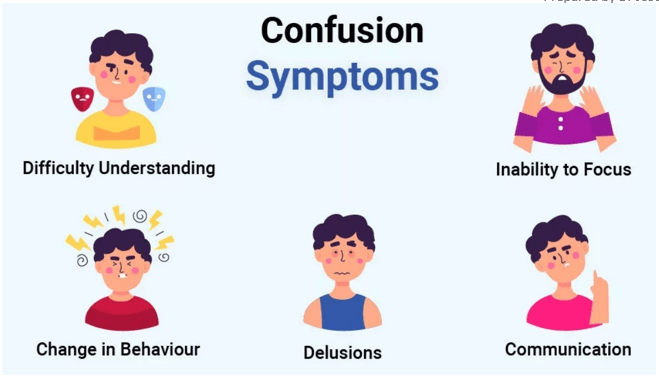An older female adult who was admited to a long-term care facility yesterday is confused about what day of the week it is. Her history does not indicate that she was confused prior to admission. What action should the practical nurse (PN) take?
Document the client's loss of memory in the record.
Notify the family of the change in the client's condition.
Remind the client what day of the week it is.
Encourage the client to rest during the day.
The Correct Answer is C
it provides reality orientation and helps the client cope with the change in environment. The client may be experiencing acute confusion or delirium due to stress, medication, infection, or other factors. The PN should remind the client of the date, time, and place frequently and use other strategies such as calendars, clocks, and familiar objects to reduce confusion.

Nursing Test Bank
Naxlex Comprehensive Predictor Exams
Related Questions
Correct Answer is A
Explanation
This statement indicates that the client has reached a level of acceptance of his prognosis, as he expresses a sense of peace, gratitude, and hope. He has found sources of strength and comfort from his faith and family, and he does not show signs of denial, anger, bargaining, or depression.
The other options are not correct because:
B . This statement indicates that the client is in the stage of rationalization, as he tries to justify or minimize his condition by stating a fact that does not address his feelings or needs.
C. This statement indicates that the client is in the stage of anger, as he shows resentment and hostility towards those who challenge his optimism or reality.
D. This statement indicates that the client is in the stage of blame, as he implies that his condition could have been prevented or treated if the doctor had diagnosed it earlier.
Correct Answer is ["B","D"]
Explanation
A) Incorrect - Providing a regular diet tray is important for the client's nutritional needs, but it is not as urgent as assessing vital signs or administering Albuterol in response to the client's acute symptoms.
B) Correct- This action is a priority after any assessment or intervention. Vital signs provide important information about the client's overall condition, including heart rate, blood pressure, respiratory rate, and oxygen saturation.
C) Incorrect - Applying oxygen is important, but its priority depends on the client's vital signs and oxygen saturation, which should be assessed first.
D) Correct- Administering Albuterol as ordered is crucial for addressing the client's acute breathing difficulty. Albuterol is a bronchodilator that helps alleviate asthma symptoms, and timely administration is essential.
E) Incorrect - Performing a pulmonary function test is valuable for assessing lung function, but it's not an immediate concern compared to addressing the client's breathing difficulty.
Whether you are a student looking to ace your exams or a practicing nurse seeking to enhance your expertise , our nursing education contents will empower you with the confidence and competence to make a difference in the lives of patients and become a respected leader in the healthcare field.
Visit Naxlex, invest in your future and unlock endless possibilities with our unparalleled nursing education contents today
Report Wrong Answer on the Current Question
Do you disagree with the answer? If yes, what is your expected answer? Explain.
Kindly be descriptive with the issue you are facing.
